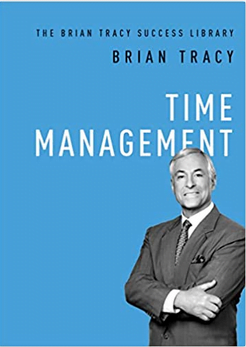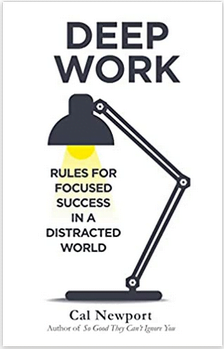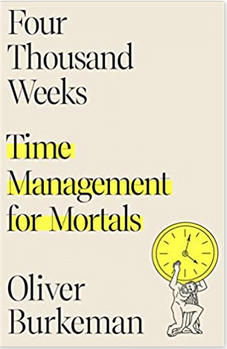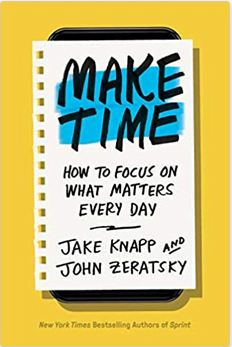Success wants almost everything including time management. Do you sometimes feel there aren’t enough hours in the day to get all things done? You wish for 1 to 2 extra hours to complete your unfinished work. But time can’t be held or bought. If you desire to achieve much more than others in a given time, you must learn how you manage time.
Related post: 100 Affirmations for Time Management to Master Your Schedule
What is Time Management?
“Time can not be managed. I merely manage activities.” — Earl Nightingale
It is the method of consciously planning and organizing how much time to spend on different activities to increase productivity and efficiency. Common time management tips include setting goals, prioritizing tasks, breaking down large tasks into smaller steps, creating schedules and to-do lists, taking breaks, and using tools and technology.
By using good time management habits and routines, you can achieve a healthy and balanced lifestyle. The core skills of effective time management are focusing your time and energy on the things that matter most, working smarter rather than harder, you can achieve more in less time, and avoiding burnout or stress caused by trying to do too much.
Why Time Management is Important?

Whether professionally or in our personal lives, we should never ignore the importance of effective time management. It is the precious thing we have. It can’t be held, it can’t be saved, and it is irreplaceable.
The average life expectancy of humans is around 4000 weeks. this sounds like a huge number until you figure out how many years are spent in childhood, sleeping, school, and retirement.
Please take a moment to consider your time before spending it on unproductive activities.
When you have a plan for how to spend your time, you feel more confident and prepared to handle whatever tasks or challenges come your way. Instead of feeling overwhelmed or reactive to external pressures. You can take charge of your schedule and proactively focus your time and energy on the things that matter most. This control can give you greater peace of mind, reduced stress, and increased overall advantage in both your personal and professional life.
Related:
Is Time Management a Skill?
Obviously, there is no doubt that time management is the most important soft skill. Nowadays, it is necessary for professional and personal life. It can’t be learned by training instead, it must be developed through experience and practice.
You only have 24 hours a day and your success depends on it. When you wisely organize your day, it’s much easier to be productive, stay motivated, avoid procrastination, and reach your goal.
Like any other soft skill, It can be developed and improved through practice and by adopting strategies that work best for an individual’s needs and preferences.
Can Time Management Reduce Stress?

Stress is like a silent killer of your health as well as productivity at work. It does not only affect you but also your entire team. There is a strong link between time management and stress levels. When you have too many tasks, you may feel worried about being unable to complete them all. It can trigger feelings of being overwhelmed, missed deadlines, and unfinished tasks, which can contribute to stress and anxiety.
When you manage your time well, can help you stay calm and focused, and ensure that you have enough time to complete all your tasks without feeling overwhelmed. By making time for self-care activities like yoga, meditation, quality sleep, and improving your overall well-being.
Finally, managing your time effectively is an important way to reduce stress and improve your quality of life. By prioritizing your tasks, scheduling your time wisely, and making time for relaxation and self-love, you can achieve a better work-life balance and feel more in control of your life.
Related:
Which Time Management Principles Addresses Procrastination?
There are key time management principles that you can use to stop procrastinating:
1. Set achievable goals: When you set clear and specific goals, you can break them down into smaller, more manageable tasks. This can help prevent procrastination by making your goals seem less overwhelming.
2. Set deadlines: Deadlines should be meaningful and appropriate. When setting deadlines, be realistic because it helps you to create a sense of urgency and accountability, keeping you focused, motivated, and productive.
3. Prioritize tasks: Now, Identify the most important tasks and complete them first. It shows you what is the most important task to do. Refuse to start any task until you have completed it to your list and evaluated its value compared to others.
4. Use a timer: Set a timer for a specific amount of time and work on a task without any distractions until the timer goes off. For example, you can put a sticky note on your desktop or you can use an app to send you a notification.
5. Eliminate distractions: Remove any potential distractions from your workspace, such as your phone, social media notifications, or unnecessary browser tabs. Try to create a quiet, comfortable workspace, that can help you maintain focus and increase productivity.
6. Be consistent: Stick to your routines as much as possible. By developing a consistent routine, you can also train your brain to associate certain activities with specific times of day, making it easier to stay on task. Remember, It’s important to find a routine that works for you and your unique needs and preferences.
How to Improve the Time Management?

Effective planning is all about intention, regulation, and understanding where your time is currently spent. In order to become successful, you must learn how to manage time effectively. Nowadays, time is the currency of current business.
Today, there are two vital sources of value in the world of work, the first is time and the second is knowledge.
By practicing these tips to manage your time, you will put yourself on the path to success.
9 Tips for Managing Time
1. Start Early
To be more productive, it’s beneficial to wake up early and tackle your most challenging task right away. Successful people often have excellent organizational skills and a routine of going to bed early and rising early.
Many individuals wake up around 5:00 A.M. or 5:30 A.M. to allow ample time for reflection and planning ahead. This practice enables them to be more effective compared to those who sleep in until the last possible moment.
These books guide you to maximize your productivity in your personal and professional life and activate your mental and physical health.
- The Miracle Morning: The 6 Habits That Will Transform Your Life Before 8 AM by Elrod Hal
- The 5 A.M. Revolution: Why High Achievers Wake Up Early and How You Can Do It, Too by Dan Luca
- The 5 AM Club by Robin Sharma
Taking a few moments to calmly contemplate before starting any task can save you significant time in its execution. When you rise early and plan your day beforehand, you tend to experience a sense of calmness, clarity, and creativity throughout the day.
2. Set your Goals and Timeline
When considering a plan for your business or work. Always, think about two important aspects: set a timeline and set goals (long-term and short-term). Setting a timeline helps you an idea of how much time it will take, and setting your goals allows you to give your energy to things you want to attain. Make your stated goals through the smart framework. Ask yourself are my goals determined, achievable, realistic, measurable, and time-bound? If they’re not, think again. It’s better to scrutinize than to underdeliver. This tip automatically makes you more productive and helps you to plan your schedule efficiently.
Read more: 100 Goal Affirmations: Your Key to Personal Growth
3. Stop Procrastinating

Procrastinating is the worst enemy of not only everyone’s life but everyone’s precious time. And often, We don’t even notice we are doing it. People procrastinate for many reasons. It could be that you’re adjourning the work at hand because you’re unsure of a small detail. Sometimes you simply don’t want to do the task. It’s also a big cause of postponing comes down to bad time management.
You must learn the time management habit of moving quickly when something requires to be done. As a rule, small works should be done swiftly, as soon as they show. This habit of taking action immediately will empower you to handle the enormous amount of work in a day. It’ll earn you fame for being the kind of person when your boss wants a task done quickly.
4. Do One Work at a Time
Avoiding multitasking is a simple tip, but it can be challenging to implement consistently. Many people believe that multitasking allows them to accomplish more in less time. It actually decreases efficiency and leads to more errors.
According to, the American Psychological Association When you switch between tasks, your brain needs time to refocus, resulting in wasted time and reduced productivity. Instead, embracing the power of single-tasking and giving each task your undivided attention can significantly enhance your performance. By focusing on one task at a time, you can allocate your mental resources effectively, reduce cognitive load, and improve concentration. This allows you to work carefully, produce higher-quality results, and avoid time management mistakes caused by juggling multiple tasks simultaneously.
5. Avoid Distractions
Life is full of limitless distractions. Your favorite TV show, social media, text messages, And web browsing. If you want to be proactive in personal time management, get rid of them. Shut all irrelevant browser tabs except the ones you are currently working on, and put your phone away. Some people like listening to songs while others enjoy a meditation session to help, Whether you work in an office or at home, find a quiet place where you feel comfortable. Keep in mind getting enough sleep, eating healthy, and drinking enough water can help you stay energetic during the workday.
6. Create a Daily Routine
Planning a daily schedule absolutely crucial if you’re going to use your time effectively. It is amazing how some people practice it every day; honestly, it is quite simple.
All you need is to take a piece of paper and pen and create a list of the most specific tasks in a day. Write a list of your tasks in a way that you know you will be productive and hold it the same all over your week. By utilizing your organizational skills to plan your day, week, and month, you gain a sense of control over your time and responsibilities. The act of proactively structuring your schedule provides a sense of empowerment, making you feel in charge of your life and priorities.
The more time you plan to make lists of everything you have to do, the sooner, the more effective and productive you will be.
7. Get Organized

Some people think that they work more effectively in a chaotic work environment with a jumbled desk. Approximately 30% of working time today is spent searching for misplaced items, It creates frustration because you are spending valuable time on misplaced things.
A study by National Geographic that has been done with people analyses that when they are forced to tidy up their work environment, their productivity doubles, and triples. Because they have only one mission in front of them. So, acquire organize and stay organized. Put all of your documents aside in the appropriate files. Keep your computer and desk clean. There are some things as irritating as valuable time looking for disordered items.
Little stuff makes a huge difference. Just consider — that small actions lead to big outcomes.
8. Learn to Say (not this time)
If you don’t learn how to say no, you’ll never know how to manage time at work. If you’re already handling multiple projects at once, or you have a lot on your plate, don’t hesitate to say no. Only you honestly know what you have time for. Rather than doing a lot of work that adds little or no value, complete limited work that creates more value.
Related:
9. Take Breaks
One of the most enjoyable and important tips for handling time is to take breaks from your busy schedule. When you feel yourself getting distracted, it means you need to take mini breaks to recharge. The human brain can focus for about 90 minutes at a time, so give your brain and body some relaxation. Taking some time for yourself or meditation can make a major difference and boost concentration.
Quotes on Time Management

“Lack of direction, not lack of time, is the problem. we all have twenty-four hour days.” – Zig Ziglar
“The key is not spending time, but in investing it.” – Stephen R. Covey
“Time is really the only capital that any human has, and the only thing he can’t afford to lose.” – Albert Einstein
“Your greatest asset is your earning ability. Your greatest resource is your time.” -Brian Tracy
“If you spend too much time thinking about a thing, you’ll never get it done.” – Bruce Lee
“Once you have mastered time, you will understand how true it is that most people overestimate what they can accomplish in a year- and underestimate what they can achieve in a decade!” – Anthony Robbins
” You get to decide where your time goes. You can either spend it moving forward, or you can spend it putting out fires. You decide. And if you don’t decide, others will decide for you.” – Tony Morgan
Time Management Books
1. Book Name – 4-Hour Workweek: Escape 9-5, Live Anywhere, And Join The New Rich by Timothy Ferriss

2. Book Name – Time Management (The Brian Tracy Success Library) by Brian Tracy

3. Book Name – Deep Work: Rules for Focused Success in a Distracted World by Cal Newport

4. Book Name – Getting Things Done: The Art of Stress-Free Productivity by David Allen

5. Book Name – Four Thousand Weeks: Time Management for Mortals by Oliver Burkeman

6. Book Name – Make Time: How to Focus on What Matters Every Day by Jake Knapp & John Zeratsky

Final Thoughts
Executing structure in your daily schedule can help you take control when you feel overwhelmed. With some planning and practice, you can learn to manage your time well. Moreover, effective planning is not solely about work-related tasks. It also encompasses allocating time for self-care, relaxation, and pursuing hobbies. Taking breaks and engaging in activities that rejuvenate our minds and bodies.
Throughout history, countless individuals have emphasized the importance of managing time wisely, recognizing that time is a finite resource that cannot be regained once lost. As our lives become busier and more complex, controlling time becomes increasingly crucial.
So, let’s explore different skills until you discover the ones that suit you best. Taking charge of your time can ultimately lead to taking charge of your life.
Related Posts:



